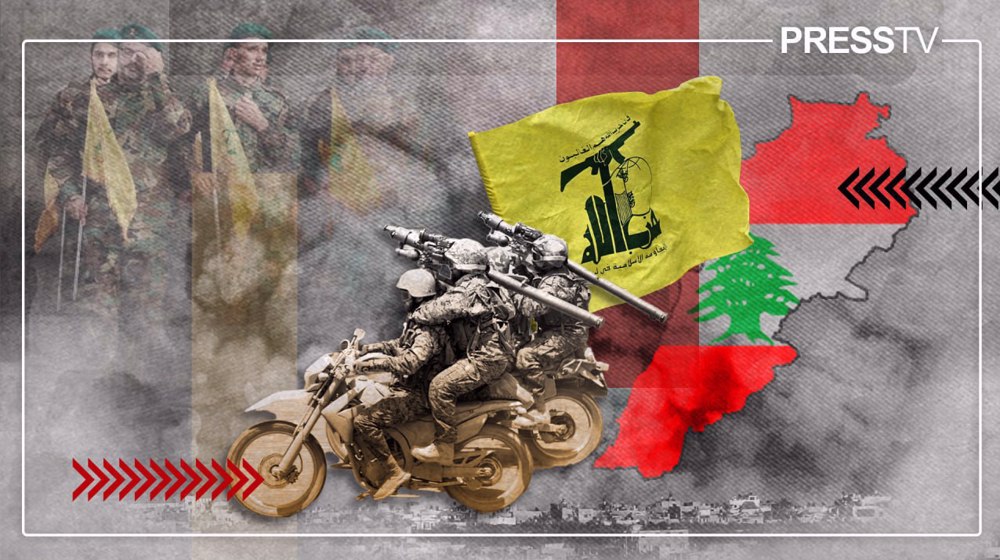By Prof. Abdullahi Danladi
The geopolitical reality of the West Asia region is shaped by a complex interplay of political subservience, resistance movements, foreign interference, and the enduring occupation of Arab lands by the Israeli regime.
In this volatile landscape, the Hezbollah resistance movement has been one of the most formidable actors, especially in confronting Israeli aggression against Lebanon.
Attempts by the Lebanese government, perceived by many as acting under external influence, to disarm Hezbollah carry profound consequences not only for Lebanon’s internal stability but also for the broader balance of power in the region.
This dynamic becomes even more significant when examined against the backdrop of Israel’s ongoing genocidal war on Gaza, which continues to inflame regional tensions and galvanize resistance movements across the region.
Hezbollah’s formation was rooted in a response to foreign occupation and aggression, particularly the Israeli invasion of Lebanon in 1982.
Over the decades, it transformed into both a political force within Lebanon and a military organization capable of challenging Israel on the battlefield.
To its supporters, Hezbollah is a resistance movement defending Lebanese sovereignty and the dignity of the broader Arab and Islamic world.
Disarming such a movement at a time when Israel continues its military domination over Gaza and carries out regular attacks on Lebanon is perceived as a betrayal of the principles of resistance and an act of compliance with foreign agendas seeking to weaken Arab and Islamic self-determination.
The occupation of Gaza, marked by genocide, crippling blockade and severe humanitarian crises, has become a powerful symbol of oppression in the Arab and Muslim consciousness.
For many, it represents the clearest example of Israel’s refusal to honor international law and human rights norms. This reality fuels the legitimacy of resistance movements, including Hezbollah, whose continued armament is viewed as a deterrent not only against Israeli incursions into Lebanon but also as a moral alignment with the Palestinian struggle.
Any attempt to forcibly disarm Hezbollah under such conditions risks being interpreted as an abandonment of the Palestinian cause and surrender to the same forces responsible for Gaza’s suffering.
Furthermore, the Lebanese government’s credibility among its population is fragile. Years of political corruption, economic collapse, and dependency on foreign aid have eroded public trust.
Moves against Hezbollah are thus unlikely to be perceived as independent decisions made for the sake of national stability; rather, they will be seen as externally dictated policies aimed at neutralizing one of Israel’s and the West’s strongest regional adversaries.
This perception deepens sectarian divide, potentially destabilizing Lebanon’s already delicate social fabric and igniting internal unrest.
Regionally, such an action would send a clear signal to Israel and its allies that resistance forces can be dismantled through political pressure and economic coercion, without the need for direct military confrontation.
This would embolden Israel’s strategic posture not only toward Lebanon but also toward Gaza and the occupied West Bank, further diminishing the prospects for a just and lasting peace.
It could also set a dangerous precedent for other countries where armed resistance remains a key factor in defending against occupation or foreign domination.
From a security standpoint, the disarmament of Hezbollah would create a dangerous power vacuum in southern Lebanon, an area that has historically been the frontline of resistance against Israeli incursions.
Without Hezbollah’s military presence, Israel might perceive an opportunity to extend its territorial expansion, as has been the case in the past when resistance capabilities were weakened.
This would in turn expose Lebanon to greater external threats, undermining its sovereignty and potentially drawing it into future wars on unfavorable terms.
Internationally, the optics of such disarmament while Gaza remains under genocide and siege would highlight the stark double standards in global politics. The same actors pressing for Hezbollah’s dismantling remain silent or complicit in the face of Israel’s actions in Gaza, actions that have been widely condemned by humanitarian organizations.
This selective application of international law and morality would not go unnoticed, fueling anti-Western sentiment and reinforcing narratives of systemic injustice in the global order.
Hence, attempting to disarm Hezbollah under a Lebanese government viewed as a puppet of external powers has far-reaching implications, especially within the current context of Israel’s brutal and forceful occupation of Gaza.
It risks undermining Lebanon’s security, fracturing its social cohesion, emboldening Israeli aggression, and eroding the moral and political foundations of regional resistance movements.
As long as Gaza remains occupied and its people subjected to genocide, the legitimacy of armed resistance in the Arab and Muslim worlds will endure, and moves to dismantle such forces will be met with fierce opposition both within Lebanon and across the region.
Professor Abdullahi Danladi is a member of the Islamic Movement in Nigeria.
(The views expressed in this article do not necessarily reflect those of Press TV.)
